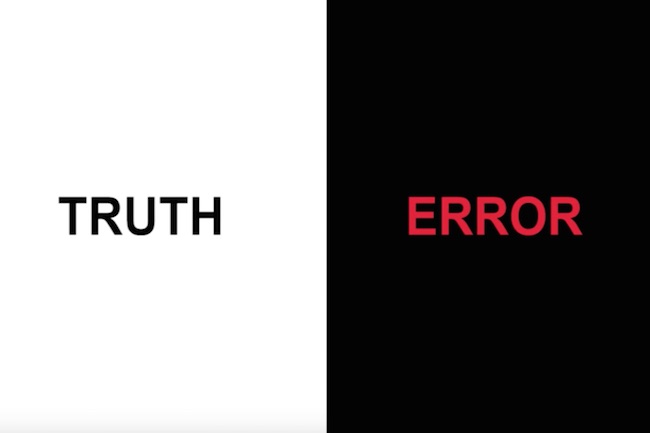Three cultural lies too many Christians still believe by Chris Elkins for Denison Forum
“If you tell a big enough lie and tell it frequently enough, it will be believed.”
That’s psychoanalyst Walter Charles Langer (1899–1981), best known for a psychological analysis of Adolf Hitler.
His truth about lying is still true.
So let’s address three popular lies perpetrated daily on our culture. They’re easy to believe, and many have fallen for one or more of them.
Lie #1: Sticks and stones can break my bones, but words can never hurt me
This is perhaps the biggest lie any of us have ever been told, much less learned to recite!
While I can take a baseball bat and break your arm, in six weeks or so it will be good as new. But, if in anger, jealousy, or just pure meanness, I tell you that you are bad, stupid, ugly or unworthy, you may carry that around for a lifetime.
And with the relative anonymity and license that social media affords many today, the damage of words—whether written or spoken—is all too evident, especially among the youngest of us.
Most of us form images of ourselves from what others tell us about ourselves. That’s especially true from significant others like parents, teachers, siblings, and even friends and neighbors. Unfortunately, some of us have been victimized by the weakness, insecurities, or anger of some of those people. And, when those emotions get weaponized via digital media and distributed widely, the pain is unbearable for some.
According to a recent report by Sandy Cohen in UCLA Health, suicide rates are highest among teens and young adults, who are among the biggest consumers of social media. And it’s not something that’s happening outside of our communities.
In Cohen’s article, she quotes a young athlete who attempted suicide: “This is not an issue reserved for the far and away. It is in our homes. It is in our conversations. It is in the people we love.”
God’s word is clear about the power of our words (with my emphasis):
- “Death and life are in the power of the tongue, and those who love it will eat its fruits” (Proverbs 18:21).
- “There is one whose rash words are like sword thrusts, but the tongue of the wise brings healing” (Proverbs 12:18).
- “I tell you, on the day of judgment people will give account of every careless word they speak” (Matthew 12:36).
- “If anyone thinks he is religious and does not bridle his tongue but deceives his heart, this person’s religion is worthless” (James 1:26).
- “Gentle words bring life and health; a deceitful tongue crushes the spirit” (Proverbs 15:4 NLT).
- “Kind words are like honey—sweet to the soul and healthy for the body” (Proverbs 16:24 NLT).
- “But now you must put them all away: anger, wrath, malice, slander, and obscene talk from your mouth” (Colossians 3:8).
Words are like bricks. They can be used constructively to build something solid and useful or they can be thrown like stones that hurt or destroy something or someone. Words are powerful. Remember, God spoke the world into existence.




